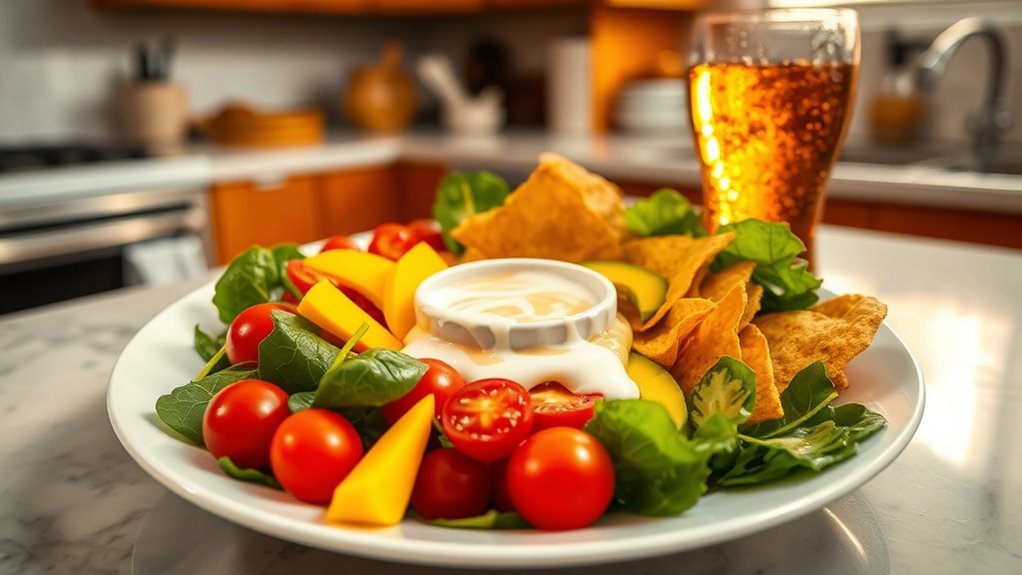Think You’re Eating Healthy. These Foods Say Otherwise
You might think that granola bars and smoothies are healthy choices, but the truth is often more complicated. Many of these items are loaded with sugars and unhealthy fats, which can sabotage your nutrition goals. It’s easy to overlook these hidden pitfalls in your diet. By understanding the actual contents of what you consume, you can make more informed decisions about your food. What other seemingly healthy foods could be undermining your efforts?
Granola Bars: Health Halo or Sugar Trap?
When you grab a granola bar, do you really know what you’re choosing? Many people believe these snacks are inherently healthy, but that’s often a nutrition myth.
They can be packed with sugars and unhealthy fats, overshadowing whole grains and nutrients. Always check the ingredient list and nutrition label to ensure you’re making a truly nutritious choice rather than falling for misleading marketing. Additionally, be aware that many granola bars are subject to misleading labels that can obscure their true nutritional value.
Smoothies: The Hidden Calories in Your Favorite Drink
How often do you find yourself sipping on a smoothie, believing it’s a healthy choice? While they can be nutritious, many smoothies are calorie-dense. You might be surprised by the ingredients boosting those calories. Incorporating omega-3 fatty acids from sources like chia seeds can greatly benefit hair and skin health, but it can also add to the overall calorie count.
| Ingredient | Calories per 8 oz |
|---|---|
| Whole Fruit | 100-150 |
| Added Sugars | 100-200 |
| Nut Butters | 200-300 |
Salad Dressings: The Caloric Culprits You’re Ignoring
Many people assume that a healthy salad is always a smart choice, but the salad dressing can significantly alter its nutritional profile.
Many dressings are high in calories and added sugars, counteracting the benefits of your fresh greens. A single serving can range from 100 to 200 calories, so choose wisely.
Opt for vinaigrettes or yogurt-based dressings for healthier alternatives.
Whole Wheat Bread: The Nutritional Deception
Whole Wheat Bread: The Nutritional Deception
Although whole wheat bread is often perceived as a healthier alternative to white bread, it can sometimes be misleading.
Here are a few aspects to consider:
- Added sugars can increase calorie content.
- Refined flour may be included, reducing nutritional value.
- Portion sizes often lead to overconsumption of calories.
Always check labels to ensure you’re making truly healthy choices. Additionally, be cautious of vague terms like “natural” does not guarantee nutritional value, as some snacks may still contain high sugars or unhealthy additives.
Vegan and Vegetarian Options: Not Always the Healthiest Choice
While you might believe that vegan and vegetarian options are inherently healthy, this isn’t always the case.
Many processed vegan foods, like plant-based burgers and snacks, can be high in sugars, unhealthy fats, and sodium. Additionally, relying heavily on refined carbohydrates, such as white rice and pasta, can lead to nutrient deficiencies. It’s essential to scrutinize labels and choose whole, minimally processed foods instead. Furthermore, essential nutrients like zinc and magnesium are often lacking in these diets, making it crucial to incorporate a variety of whole foods for optimal health.

